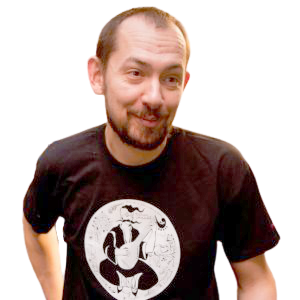The State Duma election campaign is almost over in the Russian Federation, with the election date set at September 18. Today’s composition of the lower house of the Russian parliament was elected in December 2011, amid massive ‘dissenters’ marches’ and the outcome of the vote being rigged in favor of the ruling Yedinaya Rossiya [United Russia] party. This political party of Putin-Medvedev was still called "the party of crooks and thieves" at the time, which never stopped it from picking up more than half of the Duma seats, generously giving out the rest to the so-called systemic opposition: The Communist Party, the odious Vladimir Zhirinovskiy’s LDPR, and Spravedlivaya Rossiya [Fair Russia]. The objective of this crowd is to criticize each other and create an impression of a "turbulent" political life.
Over the past five years, Russia has changed dramatically. Now there is no one left to be able to protest and, especially, chant slogans like "Russia without Putin". The campaign is structured around Russia’s historical greatness and aggressive foreign policy. Representatives of various parties pledge to save the country from the Americans, who have "broken the world order", and their ever-present Department of State; to prevent a "color revolution"; to destroy all terrorists in far-away lands; and surely, to win over "Banderites and Nazis" in Ukraine. A special focus is put on the occupation of Crimea as a great Russian achievement.
Over the past five years, Russia has changed dramatically. Now there is no one left able to protest and, especially, chant slogans like "Russia without Putin"
The rhetoric of at least 10 of the 14 parties is in fact a full copy of the main theses of the Russian propaganda of the last two years. The message claims that there are enemies all around, thus pushing the voters to the only "correct conclusion": it’s personally Vladimir Putin whom they need to thank for "the peaceful sky". By the way, criticizing Putin during the debate is no comme il faut. He is initially above all the hustle and no doubt can be cast regarding his actions. Russian economic policy can be discussed, but without much zeal. Of course, how it can be that important when the Motherland is in danger and NATO troops are almost at the gate? Although, no political force in the Russian realities can survive without a set of populist vows. All parties promise better salaries and pensions, lower utility tariffs and interest-free mortgage, social justice and other types of manna from heaven.
Many political video commercials refer to the valiant Soviet past, when no one dared make fun of the State and humiliate it. Quality and creativity of political advertising only indicates that these "masterpieces" are no professional product, and no big budgets have been allocated for their production.
Grigory Yavlinsky’s Yabloko and Mikhail Kasyanov’s Parnas are just a bit above these ranks of "patriots". The so-called Russian Liberals, as it often happens with the “Democrats”, have failed to agree to go in a single electoral list and, as a result, most likely, they won’t get through to the Duma. Supporters of mending relations with the West are out of favor in modern Russia. Although, Yabloko still cannot decide whether it is necessary to return the seized Crimea or just to pretend that in this particular case, one can make an exception and retain what has been stolen. Russian "Liberal Democrats" just appear to be real participants in the political process, but their struggle is artificial. Their maximum objective is overcoming the 3% threshold, which will give them the opportunity to receive government funding until the next election in 2021. To achieve this goal, it is important for them not to go beyond the boundaries set by the Kremlin.
The so-called Russian Liberals, as it often happens with the “Democrats”, have failed to agree to go in a single electoral list
At first glance, Russian voters are offer different party ideologies. One can vote for those willing to revive the KGB and implement the infamous "Stalin's ten blows." There are those on the list who vow to “save” the Russians abroad, where they are “humiliated on national grounds”… There are environment activists and supporters of SMB development. However, by and large, that's all just a screen, as the elections to the State Duma are make-believe. Russian legislation, updated after the white ribbon protests in 2011, provides for the half of the deputies to be elected in single-mandate constituencies. This generally means that even before the elections, the Kremlin has gained 50% of the new composition of the Duma. The candidates in those single-mandate constituencies cannot be but loyal to the authorities, and this quality is crucial for getting into parliament. To promote the “right” candidates in the constituencies, the Kremlin a few years ago created the People's Front movement. President Putin holds regular meetings with its members, which are broadcast on live TV.
Polls show the same old undisputed Four will overcome the election threshold: "United Russia" with around 50% and the veterans of Russian politics – Zyuganov’s Communist, Zhirinovsky’s LDPR and Mironov’s Fair Russia.
While the personal composition of the Duma will partially change, its essence will remain the same. Any bill submitted by the Kremlin will get a 100% parliamentary support. Whether it is the "law of scoundrels" to ban foreigners from adopt Russian children or public support for the war against Ukraine. And, if a question rises of the annexation of some territory of a neighboring country or the declaration of war, there will be no discussions on this issue. Just like the Russian soldiers, the Russian deputies will simply follow orders.
Roman Tsymbaliuk, Moscow


